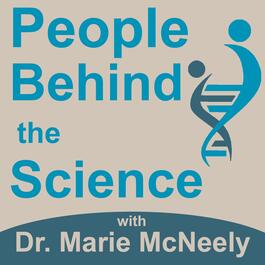
Using Lake Sediments to Get to the Core of Key Issues in Ecology and Conservation - Dr. Jacquelyn Gill
Dr. Jacquelyn Gill is an Assistant Professor of Paleoecology and Plant Ecology at the University of Maine. Jacquelyn is a paleoecologist. She studies ecology and climate change over the past 20,000 years since the end of the ice age. This involves taking a forensics-like approach to analyzing the sediments and fossil records in lakes and bogs that give clues about past climates and landscapes. When she's not thinking about science, Jacquelyn likes to be outdoors, exploring the forest and coastline in Maine. Her indoor hobbies include a weekly trivia night, knitting, and reading. She received her Masters degree and PhD in Geography from the University of Wisconsin, Madison. Afterward she served as a the Voss Postdoctoral Fellow at Brown University before joining the faculty at the University of Maine. She was the recipient of the E. Lucy Braun Award for Excellence in Ecology, the Student Section Award for Excellent Women in Ecology, and the Cooper Award all from the Ecological Society of America. She also received the Trewarth Award for Best Student Paper, the Graduate Peer Mentor Award, and the Whitbeck Dissertator Fellowship from the University of Wisconsin, Madison. Jacquelyn is with us today to tell us all about her journey through life and science.
From "People Behind the Science Podcast Stories from Scientists about Science, Life, Research, and Science Careers"


Comments
Add comment Feedback